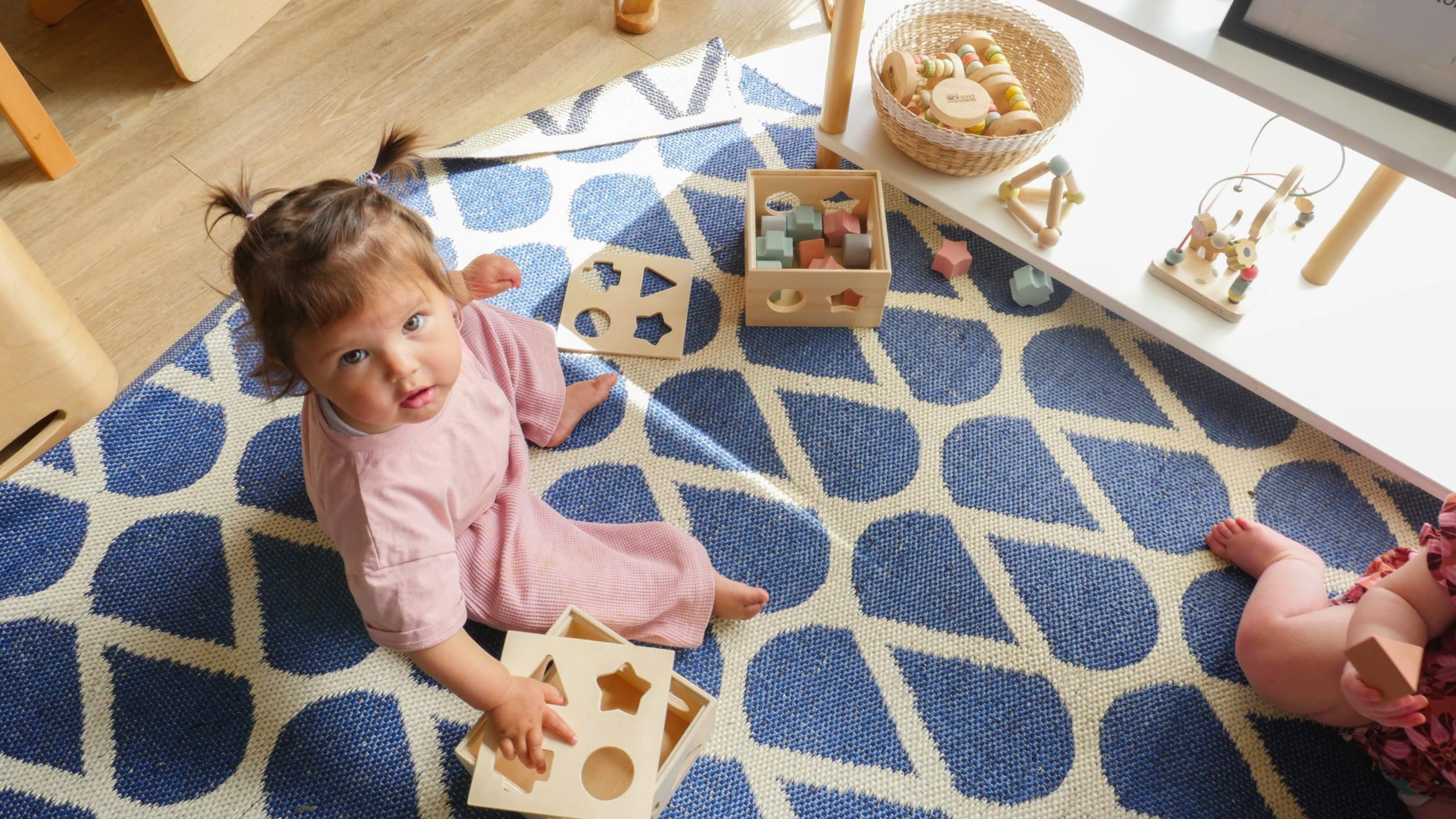5 Super Sustainable Playdough Alternatives
25 August 2022

Is your little one in the playdough phase? To avoid the nasty chemicals and in store-bought brands, read on for our list of sustainable playdough alternatives!
Children love messy play. It’s a chance to explore their imagination without fear or judgement. It also aids in fine and gross motor skills, strengthens finger muscles and may even prevent illness later in life. There’s a world of options for messy play, but many parents reach for store-bought playdough without a second thought.
While sustainable playdough brands exist, store-bought playdough is often filled with preservatives and chemicals. Sadly, this makes them unfit for decomposition and recycling – not to mention the plastic containers they come in – leading to unnecessary waste.
Our Explorers Early Learning Centres embrace environmentally friendly messy play, so here are five of our favourite alternatives to storebought playdough for you and your little one to enjoy!
1. Clay
Clay is an inexpensive alternative to storebought playdough that doesn’t leave the crusty mess when it dries out. It’s easily rehydrated, a breeze to store and costs as little as $2 a kg. Just be sure to always look out for clearly labelled and certified non-toxic clay.
The benefits of clay are multi-sensory. It encourages children to see, feel and smell the experience as they create something new. Above all, this develops children’s curiosity, attention span and confidence as they see a project develop from idea to finished product.
Little masterpieces can be taken to your local kiln to be fired and saved as mementos – perfect for gifts, ornaments or keepsakes.
Note: do not fire clay creations in your oven. Conventional ovens do not get hot enough to fire clay and may damage your appliance. Please consult your local ceramist for a kiln service.
2. Mud
Mud play is a surprisingly fun messy play option for young children. It’s a calming experience that introduces children to the wonders of nature.
Simply go to the backyard or park, add some water to a patch of dirt and let your little ones do the rest. If the weather’s not ideal or you want to save time cleaning up, just fill a bathtub or bucket to replicate the experience in a controlled environment.
A 2014 study of children in urban environments argued that young children coming into contact with bacteria found in mud may decrease the likelihood of developing asthma. This study was conducted in response to fears that over-sanitisation has led to weakened immune systems. The researchers concluded that:
‘Exposure to high levels of certain allergens and bacteria in early life might be beneficial and suggest new preventive strategies for wheezing and allergic diseases.’

3. Cloud Play
All you need for cloud play is cotton wool. Children gleefully tear and recombine the fluffy fabric, making clouds, mountains, animals or anything their little minds can conjure.
It’s ideal for hypersensitive and autistic children who may be dismayed by unfamiliar smells or textures. It’s important that children are exposed to these sensations, as not doing so may hinder their development.
Cloud play is the ideal entry point for children to explore new sensations and develop fine motor skills in a calming setting. It’s super simple, completely safe and cotton is 100% biodegradable!
4. Recycled Materials
Do you have any old boxes lying around? How about some forgotten kitchenware? What about those pipe offcuts in the shed? Don’t throw them away! You’d be amazed what a child can create with some tape, glue and sheets of cardboard.
Those old pots and pans become a robot butler, the boxes a castle in the Middle Ages and those pipes a spaceship to mars. Children’s imaginations are limitless, and using old materials reduces waste while also developing your child’s problem solving and creative skills.
All Explorers Early Learning Centres have a Recycle Station for this exact purpose. They rely on donations from families and the broader community, so if you have any old materials you’re not using, please donate them to your nearest Centre!

5. Homemade Playdough
If none of the above appeal to you or your little one, there’s an old saying that comes to mind: if you want something done right, you have to do it yourself.
Homemade playdough is an extremely basic recipe – mostly flour and water – so you can make it with ease in as little as ten minutes. It’s also a wonderful opportunity to spend some quality bonding time with your child!
All you need to make homemade playdough is:
- All-purpose flour
- Water
- Cream of tartar
- Table salt
- Vegetable or canola oil
- Gel food colouring
For an in-depth video guide, please click here.
While it can sometimes be a hassle to clean up, messy play is a vital part of all children’s development. It’s a blank canvas that not only allows, but encourages, experimentation and ingenuity. And don’t forget, it’s not just for them, you can get involved too. That’s why we have soap!
🍃 To tour one of our beautiful Centres, please click here. Otherwise, check out our website to register your interest at Explorers Early Learning today!